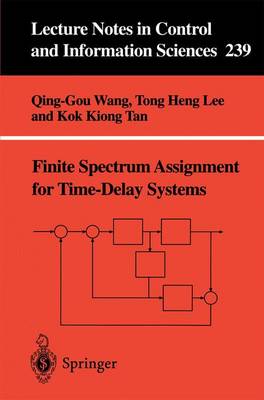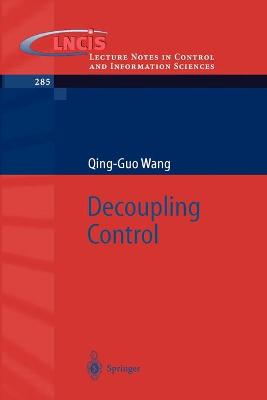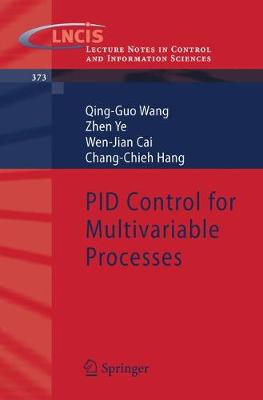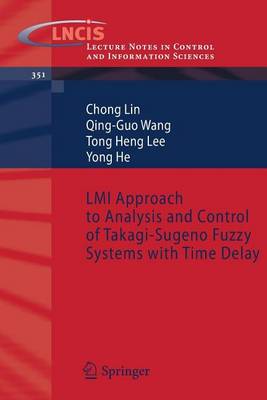Lecture Notes in Control and Information Sciences
3 primary works • 4 total works
Book 239
Finite-Spectrum Assignment for Time-Delay Systems
by Qing-Guo Wang, Tong H Lee, and Kok K. Tan
Published 25 September 1998
The presence of considerable time delays in many industrial processes is well recognized and achievable performances of conventional unity feedback control systems are degraded if a process has a relatively large time delay compared to its time constants. In this case, dead time compensation is necessary in order to enhance the performances. The most popular scheme for such compensation is the Smith Predictor, but it is unsuitable for unstable or lightly damped processes because the compensated closed-loop system always contains the process poles themselves. An alternative scheme for delay elimination from the closed-loop is the finite spectrum assignment (FSA) strategy and it can arbitrarily assign the closed-loop spectrum. One may note that the Smith Predictor Control can be found in delay systems control books and many process control books, but the FSA control is rarely included in these books. It is therefore timely and desirable to fill this gap by writing a book which gives a comprehensive treatment of the FSA approach. This is useful and worthwhile since the FSA provides not only an alternative way but also certain advantages over the Smith-Predictor. The book presents the state-of-the-art of the finite spectrum assignment for time-delay systems in frequency domain. It mainly contains those works carried out recently by the authors in this field. Most of them have been published and others are awaiting publication. They are assembled together and reorganized in such a way that the presentation is logical, smooth and systematic.
Book 285
Decoupling or non-interactive control has attracted considerable research attention since the 1960s when control engineers started to deal with multivariable systems. The theory and design techniques for decoupling control have now, more or less matured for linear time-invariant systems, yet there is no single book which focuses on such an important topic. The present monograph fills this gap by presenting a fairly comprehensive and detailed treatment of decoupling theory and relevant design methods. Decoupling control under the framework of polynomial transfer function and frequency response settings, is included as well as the disturbance decoupling problem. The emphasis here is on special or relatively new compensation schemes such as (true and virtual) feedforward control and disturbance observers, rather than use of feedback control alone. The results are presented in a self-contained way and only the knowledge of basic linear systems theory is assumed of the reader.
Book 373
PID Control for Multivariable Processes
by Qing-Guo Wang, Zhen Ye, Wen-Jian Cai, and Chang-Chieh Hang
Published 19 March 2008
Thereare richtheories and designs for generalcontrolsystems,but usually, they will not lead to PID controllers. Noting that the PID controller has been the most popular one in industry for over ?fty years, we will con?ne our discussion hereto PIDcontrolonly. PID controlhasbeenanimportantresearchtopicsince 1950's, and causes remarkable activities for the last two decades. Most of the existing works have been on the single variable PID control and its theory and design are well established, understood and practically applied. However, most industrial processes are of multivariable nature. It is not rare that the overall multivariable PID control system could fail although each PID loop may work well. Thus,demandforaddressingmultivariableinteractionsishighforsuccessful applicationofPIDcontrolinmultivariableprocessesanditisevidentfrommajor leading control companies who all rankedthe couplings of multivariable systems as the principal common problem in industry. There have been studies on PID control for multivariable processes and they provide some useful design tools for certaincases. But itis notedthat the existing worksaremainlyfor decentralized form of PID control and based on ad hoc methodologies. Obvious, multivariable PID control is much less understood and developed in comparison with the single variable case and actual need for industrial applications. Better theory and design have to be established for multivariable PID control to reach the same maturity and popularity as the single variable case. The present monograph puts together, in a single volume, a fairly comp- hensive, up-to-date and detailed treatment of PID control for multivariable p- cesses, from paring, gain and phase margins, to various design methods and applications.



